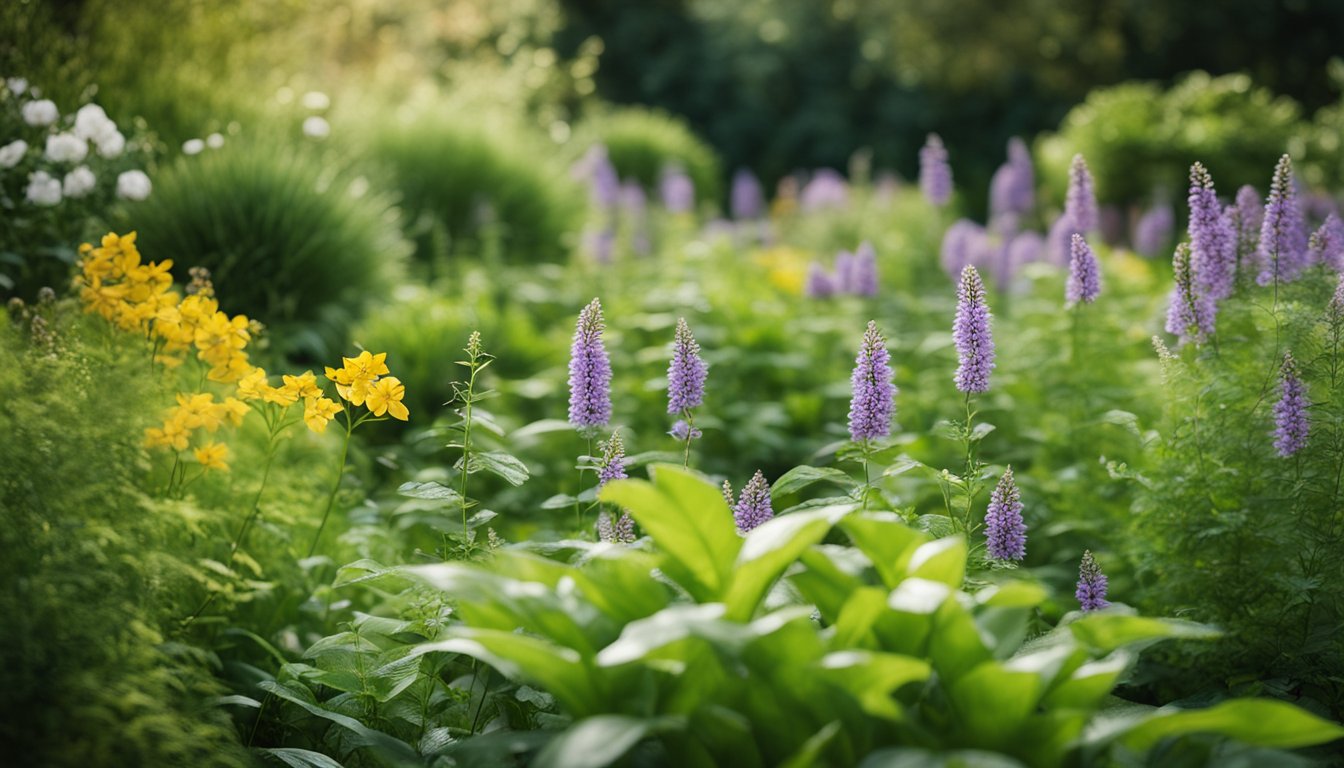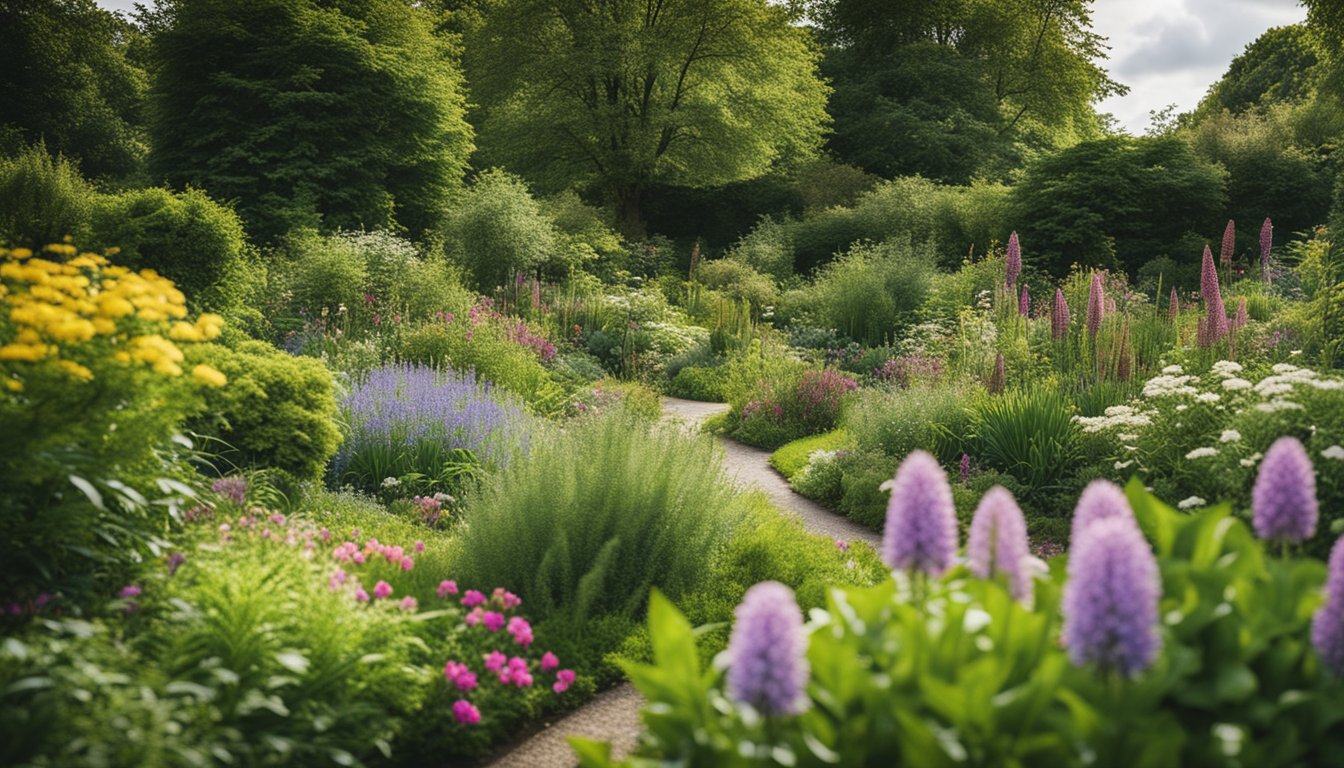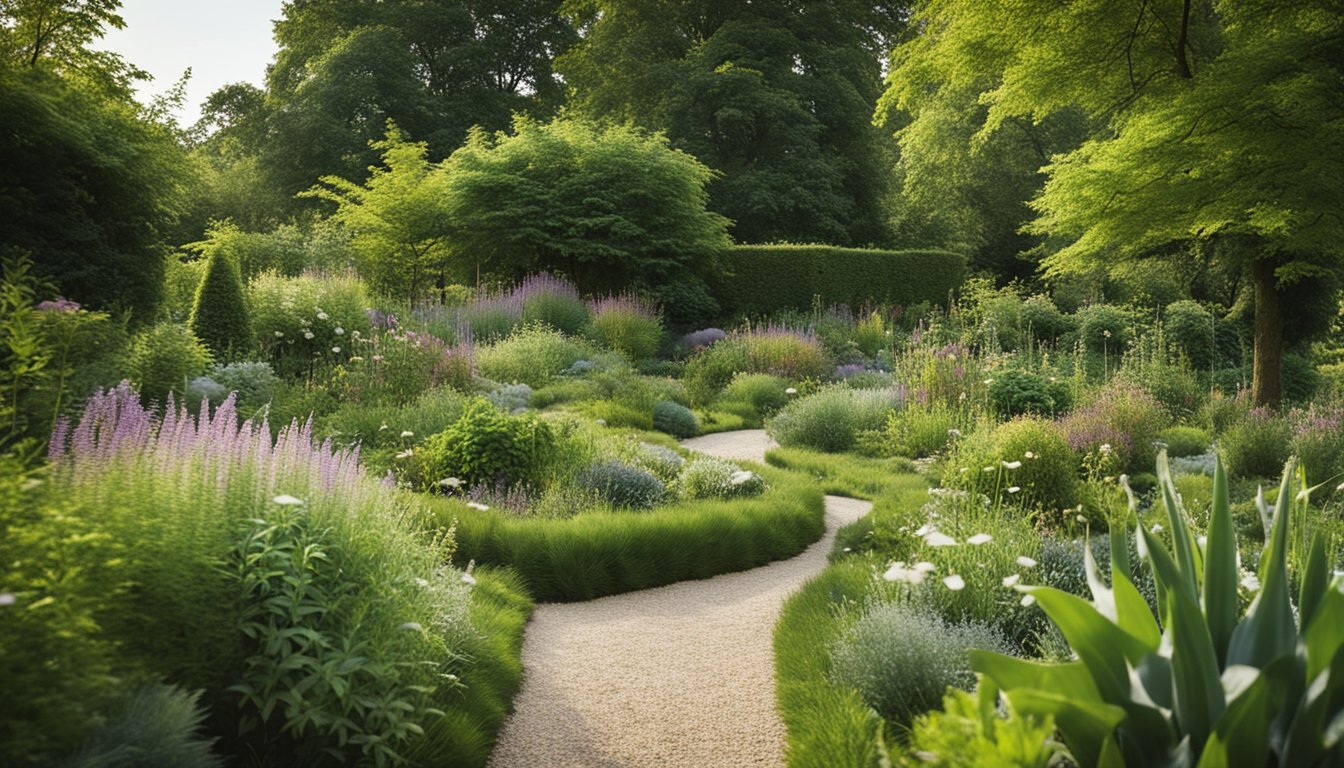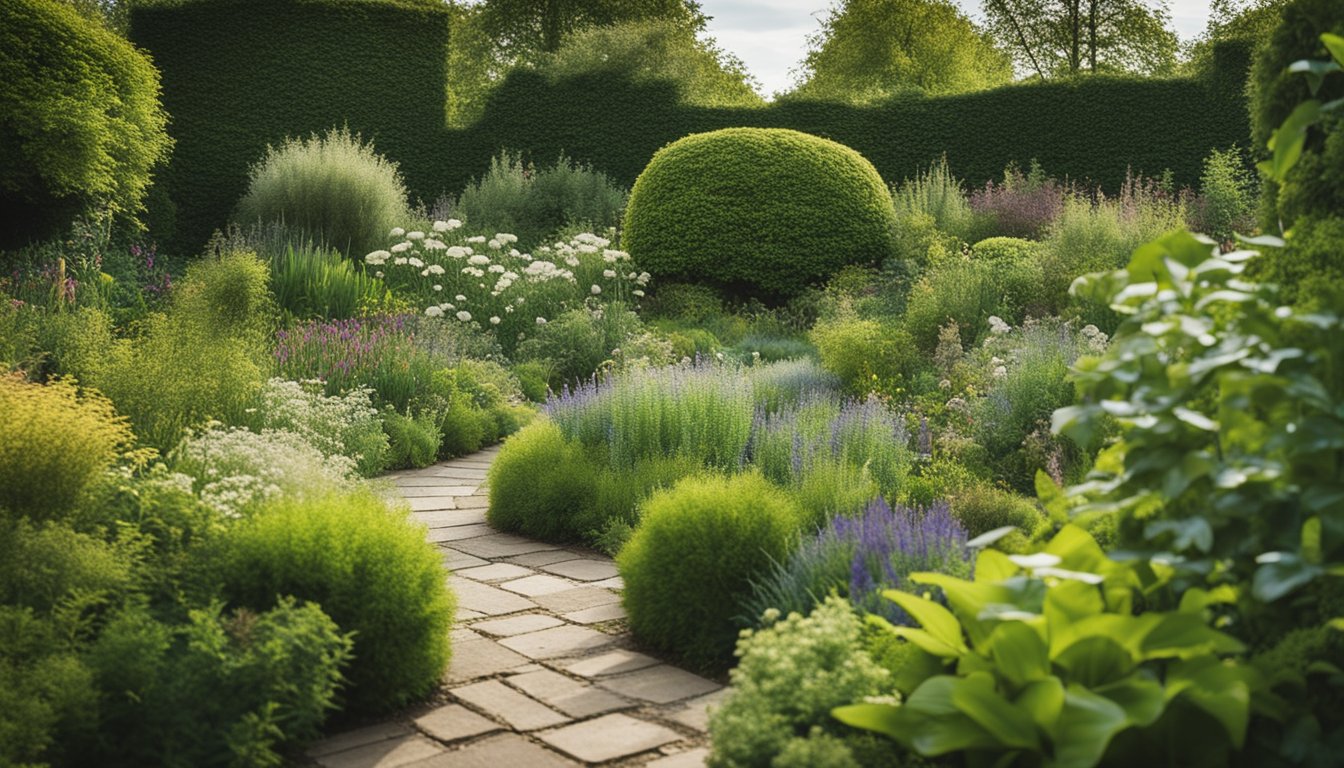Late updated: 22 Oct 2024 08:10
Written by: Emily Thornton
The Role Of Native Plants In UK Garden Design: Enhancing Biodiversity and Aesthetics
Creating a garden that harmonises with the local environment is not only aesthetically pleasing but also ecologically vital. Native plants play a pivotal role in this relationship, offering a sustainable way to enrich garden aesthetics while supporting local wildlife. Incorporating native plants into our garden designs in the UK brings a multitude of environmental and practical benefits, from conserving water to enhancing biodiversity.

By focusing on flora that has adapted to the British climate, we tap into a resilience that non-native species often lack. This connection to the environment goes beyond just surviving the weather; it involves creating a space that provides food and shelter to local species, thus fostering a thriving garden ecosystem. When we design with native plants, we benefit from the authentic beauty of the landscape, all while contributing to conservation efforts in our communities.
Exploring native plants is not just about choosing the right species but understanding how they interact with the rest of our garden. Through thoughtful selection and placement, we can optimise habitat diversity and address common gardening challenges. Our approach creates a garden space that tells a story of regional heritage and ecological mindfulness.
Key Takeaways
- Native plants enhance UK gardens' aesthetics and sustainability.
- Choosing regional flora supports local biodiversity and conservation.
- Thoughtful garden design using native plants boosts ecological health.
Understanding the Importance of Native Plants in UK Gardens

Native plants play a crucial role in UK garden design by supporting local ecosystems and offering practical benefits. They enhance biodiversity and sustainability while reducing garden maintenance needs.
Defining Native Plants and Their Roles
Native plants, including native trees and wildflowers, are species that have evolved naturally in a region. In the UK, these plants are well-adapted to the local climate and soil conditions. This adaptation ensures they thrive with minimal human intervention, making them ideal for sustainable gardening.
These plants contribute significantly to ecological balance. By stabilising soil and providing natural drainage, they help manage water runoff and prevent erosion. Additionally, native species do not require chemical fertilisers, reducing environmental pollution. Their natural hardiness also means they are less prone to pests and diseases.
Benefits to Local Wildlife and Pollinators
The use of native plants supports local wildlife by providing essential habitats and food sources. Many UK native plants, such as wildflowers and hedgerows, are vital to birds, insects, and other wildlife. These plants attract a diverse range of species, promoting biodiversity within gardens.
Pollinators, including bees and butterflies, particularly benefit from native flowers. These plants provide nectar and pollen, helping sustain pollinator populations. By incorporating native plants, we can foster a thriving wildlife habitat, enhancing the natural beauty of our gardens. This, in turn, strengthens local ecosystems and contributes to a more sustainable environment.
Practical Guides for Incorporating Native Flora

Incorporating native flora into our gardens enhances biodiversity and promotes ecological balance. We must take climate, soil, and available outdoor space into account when selecting suitable plants.
Selecting the Right Species for Your Garden
Choosing native species is vital for a thriving garden ecosystem. Our focus should be on plants well-suited to UK climate conditions. We must evaluate soil types and conditions to match them with plant preferences.
Sandy soils might favour species like verbena and phacelia, while clay soils could support field maple and holly successfully. It’s crucial to consider sunlight exposure, varying plant species accordingly, from sunny spots to shaded areas.
An understanding of local wildlife can guide plant selection. Native flowers can attract beneficial insects such as bees and butterflies. For transforming outdoor spaces sustainably, native plants are essential allies.
Designing with Native Trees and Hedging
Native trees and hedging are instrumental in garden design, offering structure and habitat. In our space, we can utilise species like hawthorn, which provide robust barriers and support wildlife. For areas needing taller plants, beech or field maple trees add height and canopy without overwhelming smaller gardens.
Hedging like yew or blackthorn creates privacy and shelters birds. Proper spacing is crucial; consulting a planting guide ensures hedges look appealing and are sustainable.
We recommend combining trees and hedging with herbaceous layers. This enhances visual interest through varying heights and textures, supporting a variety of species within our native flora gardens.
Frequently Asked Questions

Native plants play a vital role in UK garden design by offering benefits such as supporting local wildlife, enhancing sustainability, and reducing garden maintenance. These plants are also key in pest management and biodiversity conservation, making them an excellent addition to any garden setting.
What benefits do native species offer to local wildlife and ecosystems?
Native plants provide essential resources like food and habitat for local wildlife. They help support species such as birds, bees, and butterflies by offering nectar and shelter. These plants are well-adapted to the local environment, helping maintain ecological balance and enhance biodiversity.
How can incorporating native plants improve the sustainability of a garden?
By using native plants, we can conserve water and reduce the need for chemical inputs. These plants are naturally adapted to the local climate and require less water and fertiliser. Consequently, they contribute to a more sustainable garden ecosystem by lowering environmental impact and promoting resource efficiency.
What considerations should be taken into account when selecting native plants for a garden design?
Understanding the specific soil, sun, and moisture conditions of your garden site is crucial. We should also consider the plant's climate adaptability and growth habits. Selecting the right native species ensures compatibility with the local environment, promoting healthy plant growth and improving overall garden vitality.
How do native plants contribute to biodiversity conservation in gardens?
Native plants attract and support a variety of local wildlife, including pollinators and beneficial insects. By fostering diverse ecological interactions, we help build resilient ecosystems. Incorporating native flora strengthens the biological diversity within our gardens, contributing positively to local biodiversity conservation efforts.
Can native plants reduce the maintenance requirements of a garden?
Indeed, native plants are generally low-maintenance. They are naturally suited to the local climate, requiring less irrigation and fertilisation. By incorporating these hardy species, we can enjoy a lush and vibrant garden without the extensive upkeep typically associated with ornamental gardening.
What role do native plants play in pest management within a garden setting?
Native plants attract beneficial insects that naturally prey on common garden pests. This biological control reduces our reliance on pesticides, contributing to an environmentally friendly garden. By encouraging these natural defences, native plants help maintain a balanced ecosystem and protect our gardens from potential pest outbreaks.
